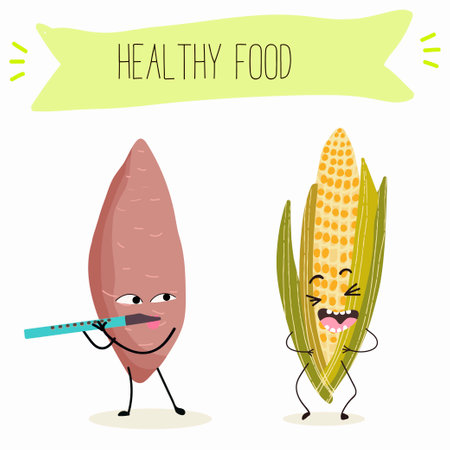Introduction to Veganism in the UK
In recent years, veganism has seen a remarkable surge in popularity across the UK, moving from a once niche lifestyle choice to a mainstream movement embraced by people of all ages. This shift can be attributed to a blend of cultural influences, increased awareness around environmental issues, and evolving attitudes towards food and animal welfare. British society has witnessed a wave of plant-based eateries cropping up from London to Glasgow, while supermarkets now boast dedicated vegan aisles filled with innovative products. High-profile campaigns like Veganuary have encouraged thousands to try a vegan diet each January, and celebrities as well as influencers continue to champion the cause on social media. The rise of veganism is not only about personal health or ethical concerns; it is deeply intertwined with growing public consciousness about sustainability and the planets well-being. This trend reflects a broader transformation in British food culture, where traditional dishes are being reimagined without animal products, and younger generations are leading the way towards more environmentally friendly lifestyles.
Food Production and Agricultural Land Use
When considering the environmental impact of veganism in the UK, its essential to explore how plant-based diets reshape both food production and agricultural land use. Traditionally, British agriculture has centred on livestock farming—cattle, sheep, and poultry—occupying significant portions of arable and pasture land. The shift towards veganism is prompting a re-evaluation of these systems, encouraging a move away from animal agriculture towards more diverse crop cultivation.
Shifting Land Use Patterns
Livestock farming requires extensive grazing pastures and large quantities of feed crops such as barley and maize. In contrast, plant-based diets demand a broader range of vegetables, legumes, grains, and pulses, which generally require less land per calorie produced. This transition allows for more efficient food production per hectare and can reduce the overall footprint of British agriculture.
Comparing Land Requirements
| Type of Diet | Land Required (hectares per person per year) |
|---|---|
| Traditional Omnivorous | 0.18 |
| Vegetarian | 0.13 |
| Vegan | 0.09 |
This table illustrates that adopting a vegan diet could potentially halve the land required for food production compared to an omnivorous one.
Crop Diversity and Local Adaptation
The shift also encourages greater crop diversity in the UK’s fields. Instead of monocultures primarily grown to feed livestock, farmers are introducing varied crops such as beans, peas, oats, and rapeseed to meet plant-based dietary needs. This diversification not only supports soil health and reduces dependency on synthetic fertilisers but also helps local farmers adapt to changing consumer demands. Additionally, growing more crops for direct human consumption rather than animal feed can help increase food security within the UK.
In summary, as veganism gains traction across Britain, it is driving transformative changes in how we use our countryside—encouraging more sustainable crop choices, reducing the pressure on farmland, and paving the way for a more resilient food system tailored to future generations.
![]()
3. Greenhouse Gas Emissions
One of the most compelling reasons for the growing interest in veganism across the UK is its potential to reduce greenhouse gas emissions. The food and agriculture sector is a major contributor to the nation’s carbon footprint, with livestock farming—especially cattle and sheep—being particularly resource-intensive. According to recent studies, animal agriculture accounts for a significant proportion of methane and nitrous oxide emissions, both of which are far more potent than carbon dioxide in terms of their impact on global warming.
By shifting towards plant-based diets, Britons can make substantial cuts to these emissions. Plant-based foods generally require less land, water, and energy to produce when compared with their animal-based counterparts. For instance, producing one kilogram of beef can generate up to 60 kilograms of greenhouse gases, whereas producing the same amount of peas results in less than one kilogram of emissions. This stark contrast highlights how everyday food choices can collectively influence the UK’s environmental trajectory.
Moreover, embracing veganism at scale could alleviate pressure on local ecosystems and promote more sustainable land use patterns. The Committee on Climate Change has suggested that widespread adoption of plant-based eating habits could play a pivotal role in helping the UK meet its ambitious net zero targets by 2050. Therefore, while individual dietary changes may seem modest in isolation, they hold considerable potential when multiplied across millions of households striving for a greener future.
4. Water and Resource Consumption
When considering the environmental impact of our food choices, water and resource consumption play a significant role. In the UK, traditional British diets often include a range of animal-based products—roast beef, fish and chips, or a full English breakfast, to name just a few. These foods require substantial natural resources for their production, particularly when compared to plant-based alternatives commonly found in vegan diets.
Comparing Water Usage
Livestock farming is notably water-intensive. Producing just one kilogram of beef can require up to 15,000 litres of water, factoring in drinking water for animals and water used to grow animal feed. In contrast, staple vegan foods such as potatoes, beans, and oats require significantly less water per kilogram. This disparity is especially important in the UK, where reducing overall water consumption supports local sustainability initiatives and helps address pressures on freshwater resources.
| Food Item | Water Used per kg (litres) |
|---|---|
| Beef | 15,000 |
| Pork | 6,000 |
| Poultry | 4,300 |
| Potatoes | 287 |
| Oats | 1,644 |
| Lentils | 5,000 |
| Bread (Wheat) | 1,608 |
The Impact on Natural Resources
Apart from water use, traditional meat-heavy British diets also demand more land and energy compared to vegan options. Animal agriculture occupies more farmland due to grazing needs and the cultivation of feed crops. In contrast, plant-based diets make more efficient use of land and energy inputs by skipping the intermediary step of raising animals.
A Step Towards Balance
Shifting towards vegan options can help reduce the strain on the UKs natural resources. While no diet is entirely without environmental impact, adopting more plant-based meals can be an effective way to live in better balance with the environment—an approach increasingly valued in British culture as people seek ways to tread more lightly on the earth.
5. Wildlife, Biodiversity, and Local Ecosystems
The movement towards veganism in the UK has far-reaching implications for wildlife, biodiversity, and the cherished countryside landscapes that define much of the British identity. As more people reduce or eliminate animal products from their diets, there is a noticeable shift in land use, which can both positively and negatively affect local ecosystems. One of the most significant potential benefits lies in the reduction of livestock farming. This sector requires vast tracts of land for grazing and feed production, often at the expense of natural habitats. By decreasing demand for these products, swathes of countryside previously used for pasture could be allowed to return to woodland, heathland, or wetland, encouraging the resurgence of native flora and fauna.
However, the transition also presents challenges. Traditional mixed farming systems have historically supported a range of species across the British Isles. These patchworks of hedgerows, meadows, and small fields provide essential habitats for birds, insects, and mammals. A sudden change in agricultural practices—such as large-scale conversion to monoculture crops grown for plant-based diets—could risk diminishing this mosaic landscape, reducing biodiversity if not managed carefully. The key lies in promoting agroecological methods that favour crop rotation, wild margins, and minimal chemical inputs.
Moreover, rewilding initiatives are gaining traction in various parts of the UK as part of a broader response to changing dietary habits and climate concerns. These projects aim to restore natural processes and reintroduce lost species such as beavers or red kites, further enriching Britain’s wild spaces. In this context, veganism aligns with efforts to create more resilient ecosystems less reliant on intensive agriculture. For many Britons who value access to green spaces—whether for walking the dog on a bracing morning or simply soaking up the tranquillity—a vegan future offers both hope and responsibility: hope for thriving wildlife populations and responsibility to steward these landscapes with care.
6. Challenges and Opportunities in the UK Vegan Movement
Adopting a vegan lifestyle in the UK presents a unique set of challenges and opportunities, both at an individual and societal level. While the environmental benefits of veganism are well-documented, putting theory into practice is not always straightforward. One significant barrier remains food accessibility. Although plant-based options have become more common in supermarkets and high street restaurants, there are still rural and lower-income areas where choice is limited and prices can be prohibitive. This disparity highlights the need for greater inclusivity within the vegan movement.
Culinary traditions also play a key role in shaping attitudes towards veganism. The UK boasts a rich food heritage, from Sunday roasts to full English breakfasts, which can make the shift to plant-based eating seem daunting or even culturally alienating for some. However, these very traditions offer fertile ground for innovation—chefs, home cooks, and brands are reimagining classic British dishes with plant-based ingredients, opening up opportunities for cultural evolution rather than erasure.
Public policy is another important factor influencing the uptake of veganism in the UK. Government initiatives that support local agriculture, update school meal standards, or subsidise sustainable food systems could help bridge existing gaps in accessibility and affordability. At the same time, there’s a growing conversation around labelling regulations and advertising standards to ensure consumers are accurately informed about their choices.
Socially, the rise of veganism has sparked vibrant community movements, from grassroots activism to online support networks. These spaces provide opportunities for education, resource sharing, and collective action aimed at reducing environmental impact. However, it’s crucial to recognise that not everyone is starting from the same place; intersectional approaches that account for economic, cultural, and social differences are essential if the movement is to grow sustainably and equitably across the UK.
7. Conclusion and Future Outlook
As we reflect on the environmental impact of veganism in the UK, it is clear that a plant-based lifestyle offers substantial benefits for both the planet and society. From reducing greenhouse gas emissions and water usage to alleviating pressure on land resources, the shift towards veganism has already begun to reshape the British food landscape. At the same time, this movement encourages a more mindful approach to consumption, supporting local producers and ethical practices. Looking ahead, as more Britons embrace veganism, we can expect further innovation in sustainable food production, increased availability of plant-based options, and a wider societal focus on environmental stewardship. If current trends continue, veganism could play a pivotal role in helping the UK meet its climate targets and inspire a new era of conscious living. The future may hold challenges—such as ensuring nutritional balance and supporting farmers in transition—but with collaboration and open dialogue, these can be addressed. Ultimately, veganism’s evolution across the UK signals not only a dietary shift but also a broader cultural change towards respect for our environment and well-being.


